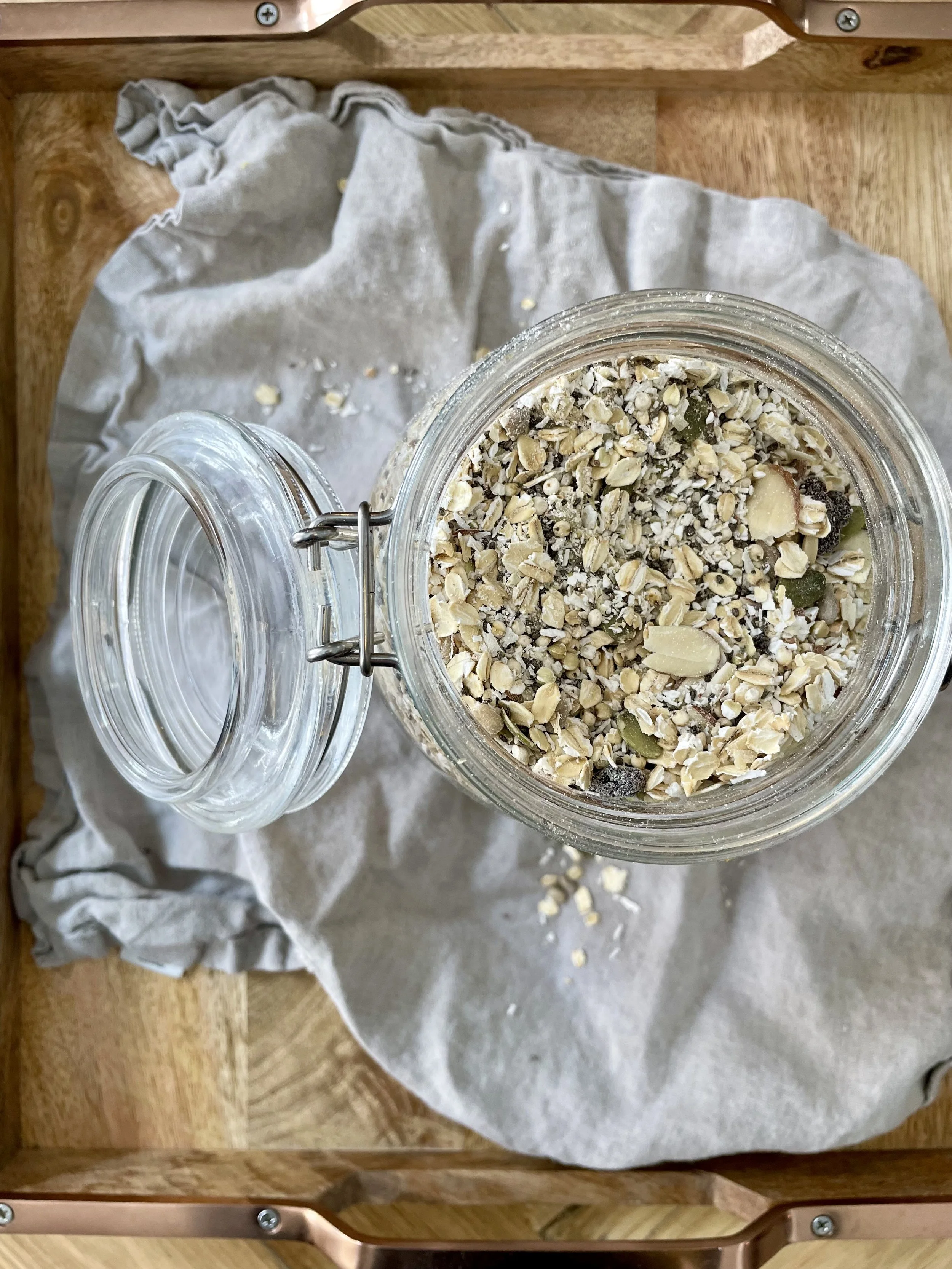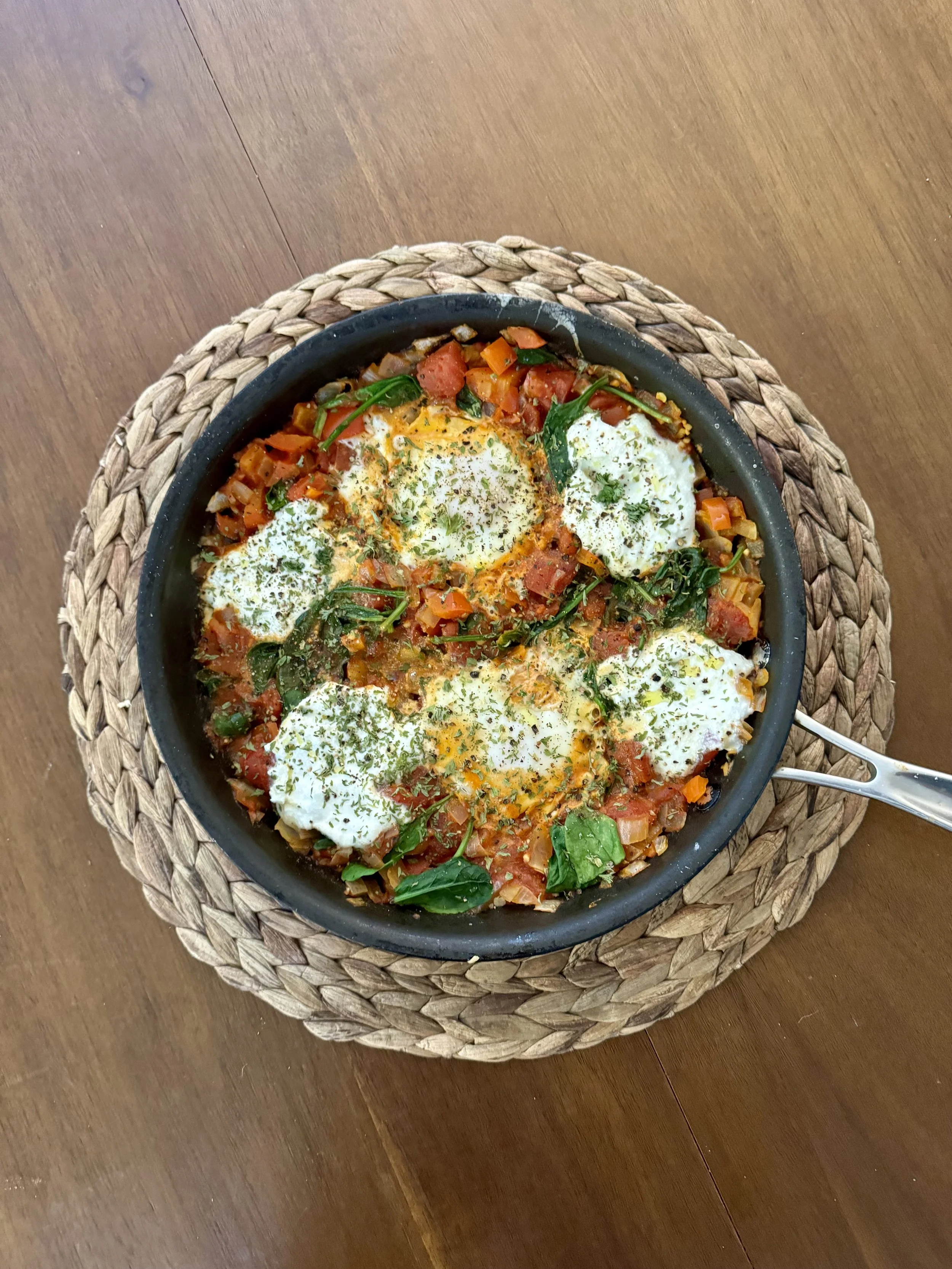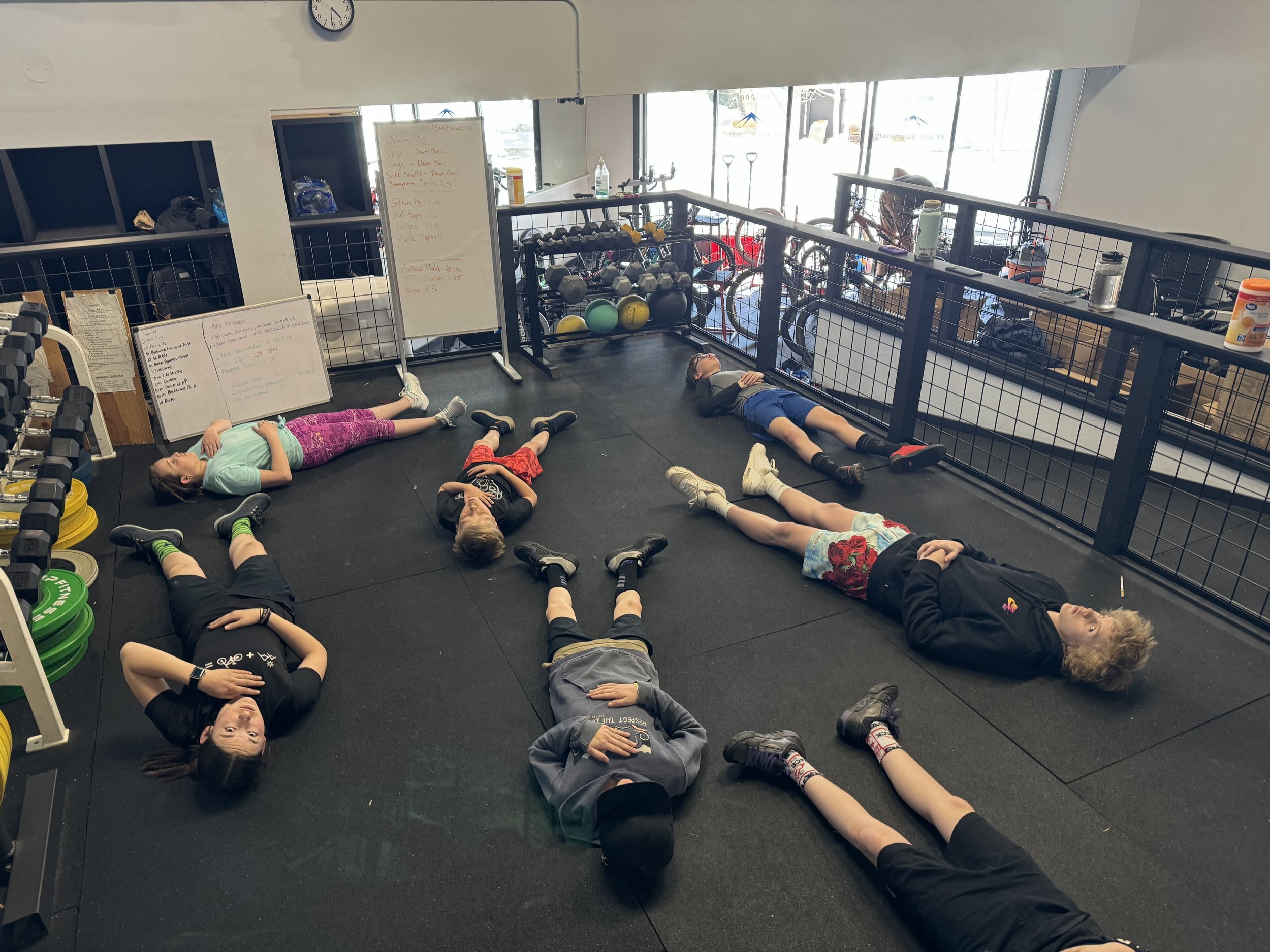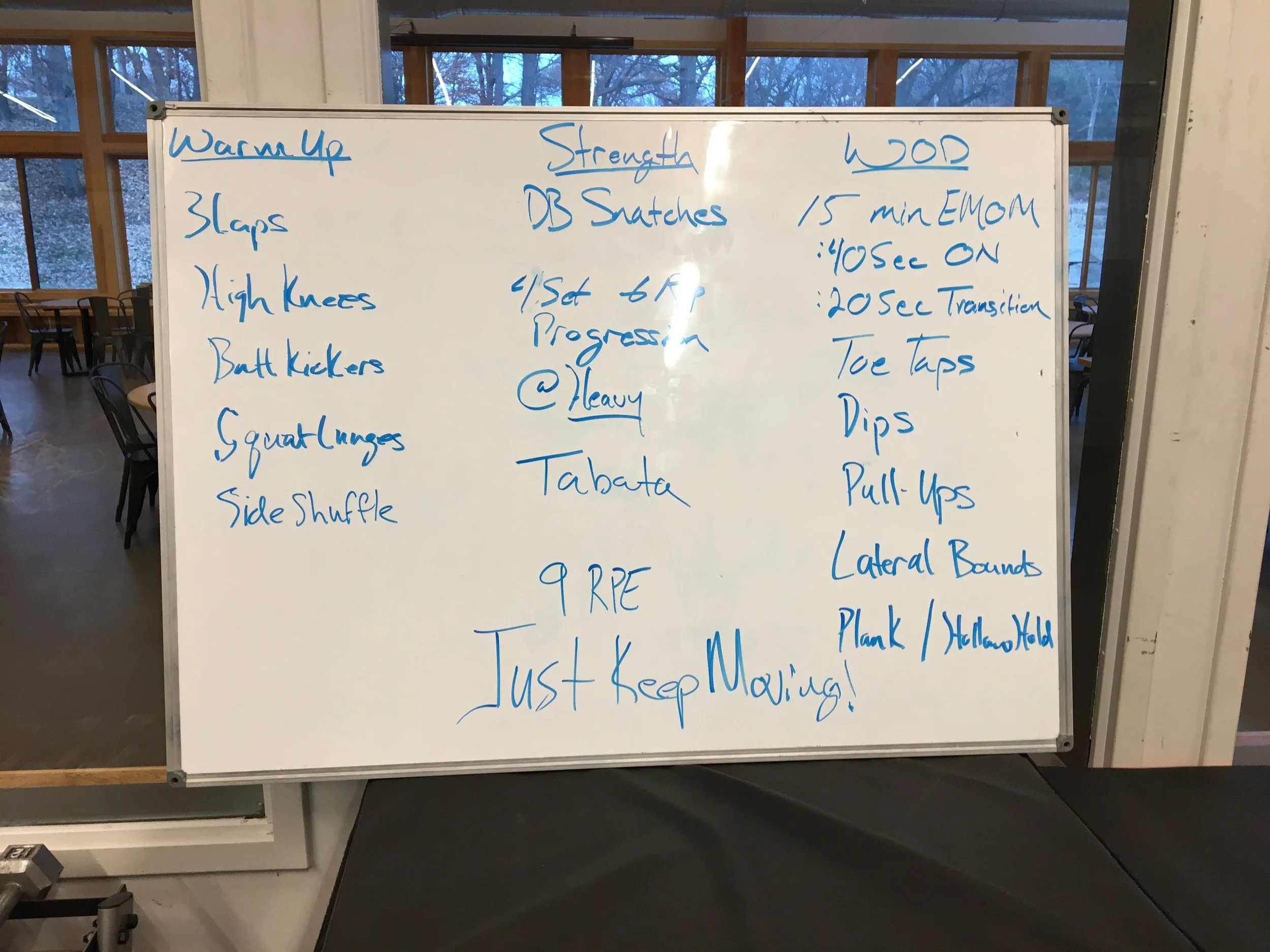5 Nutrition and Wellness Tips for The Cycling Offseason
This Creamy Buckwheat Cereal is the perfect meal to include in your cycling offseason
As the cold weather months approach most of us enter the cycling offseason. This period gives us a moment to reconsider the foods we put in our bodies. During the peak cycling season, we are often on the go, grabbing anything and everything we can use to fuel our bodies. The offseason allows us to slow down, spend more time in the kitchen, and incorporate more whole foods—such as whole grains, vegetables, and fruits—into our diets.
Due to the shorter days and cooler temperatures, our metabolism changes to promote increased fat storage and the use of carbs throughout the day. We also tend to crave more nutrient-dense and “warm” foods. As a result, a diet lower in carbs and higher in fats and proteins is a good fit for the cycling off-season.
Here are 5 essential nutrition and wellness tips to help you maximize your cycling offseason.
1. Focus On eating Whole Foods
During the peak cycling season, we are often on the go, grabbing anything and everything that we can use to fuel our bodies - this can often end up being pre-packaged, store-bought snacks and meals - and while useful at times during the peak cycling season, it’s not as effective in the offseason.
During the offseason, shift your focus from quick, on-the-go snacks to nutrient-dense whole foods. Emphasize fruits, vegetables, nuts, seeds, whole grains, and legumes in your diet. These foods provide a wide array of vitamins, minerals, and antioxidants that support overall health and recovery.
Eating whole foods provides more nutrient-dense fuel for our bodies that can help us better meet our nutritional needs, regulate appetite, and provide numerous health benefits.
Fruits, vegetables, nuts, seeds, whole grains, and legumes are some of the most nutritious foods on the planet and are what your body needs to fuel, recover, and thrive during the cycling off-season (and year-round!).
Recommended read: Superfoods for Cyclists and How to Incorporate them into Your Everyday Diet.
2. Prioritize Fiber, Fat, and Protein Intake
Our energy expenditure is generally lower during the cycling offseason since we’re not training as much or as long. Pay special attention to fiber, healthy fats, and proteins during the cycling offseason. These nutrients promote satiety, support muscle maintenance, and aid in recovery. You also don’t need to worry about these slow-digesting macros interrupting your training as much.
Eating more whole foods (as pointed out in tip #1) should naturally help you get more of these macros into your diet. Otherwise, try adding ground flaxseed to your morning oatmeal for a fiber and omega-3 boost. Incorporate legumes into hearty soups for added protein and fiber. Sprinkle some nuts (walnuts) and seeds (chia seeds) over your yogurt bowl for an extra dose of healthy fats, fiber, and protein. Or sautee up some leafy greens like kale or spinach to pair with your sweet potato and quinoa bowl.
3. Focus Less on Carbs
While carbohydrates remain an important part of your diet, the cycling offseason allows for a shift toward a more balanced macronutrient profile. We still want to prioritize eating balanced snacks and meals throughout the day, but when we do: focus less on carbs.
When you do eat carbs, opt for complex carbohydrates (brown rice, quinoa, steel-cut oats, millet, sweet potato, and legumes ) over simple carbs (white rice, white bread, cereal, fruit juice, white flour tortillas, etc..). This approach helps maintain insulin sensitivity and supports overall metabolic health.
Remember, the goal is not to eliminate carbs but to adjust the types and their proportion in your diet to match your current activity level.
Recommended read: Chris Carmichael's Food for Fitness: Eat Right to Train Right
4. Get In The Kitchen + Try New Foods
The cycling offseason provides an excellent opportunity to explore new culinary horizons. Use this time to experiment with cooking techniques and try new recipes that can become staples in your cycling diet. Consider investing in a cycling-specific cookbook like Bakin' Biker 25', which offers nutritious recipes tailored to cyclists' needs.
Additionally, embrace seasonal produce to diversify your nutrient intake and support local agriculture. Cooking at home allows you to control ingredients and portion sizes, contributing to better overall nutrition.
Aside from the nutritional aspect of food, the act of baking and cooking also allows us to slow down in the fast-paced world we often find ourselves living in. It gives us the chance to nourish our bodies for life, sport, and overall well-being. And it also allows us to bring people together and find joy in a home-cooked meal with one another. This is the often-forgotten, not-talked-about enough benefit of making food from home that we need to start placing more emphasis on.
5. Rest and Recover!
Nutrition during the offseason isn't just about what you eat; it's also about supporting your body's recovery and preparation for the next season. Use this time to engage in alternative activities like hiking, swimming, nordic skiing, or strength training, which can complement your cycling fitness. Ensure your nutrition supports these activities and promotes recovery.
It’s been a long season! Remember, the balance between stress and rest is crucial for growth and adaptation. Make sure you prioritize giving your body the time it needs off the bike. You’ll know when you’re ready to get back at it.
Recommended read: Peak Performance: Elevate Your Game, Avoid Burnout, and Thrive with the New Science of Success
Recommended read: How to Plan Your Offseason: When to Start and What to Do
Conclusion
The cycling offseason presents a unique opportunity to refine your nutrition strategy, address any deficiencies, and prepare your body for the challenges ahead. By focusing on whole foods, balancing your macronutrients, exploring new recipes, and supporting your body's recovery, you'll be well-positioned to maintain your fitness and well-being and hit the ground running when training resumes. Remember, the habits you form during the offseason can significantly impact your performance when you return to cycling. Stay consistent, stay curious, and use this time to build a strong nutritional foundation for your cycling success.
Dive into more recipes + resources to fuelYour Cycling Offseason
Bakin’ Biker ‘25 Cookbook
The 2025 edition of Bakin’ Biker is loaded with over 100 simple-to-prepare, energizing, and downright delicious real-food recipes designed for busy cyclists on the go. Order your copy today.






















